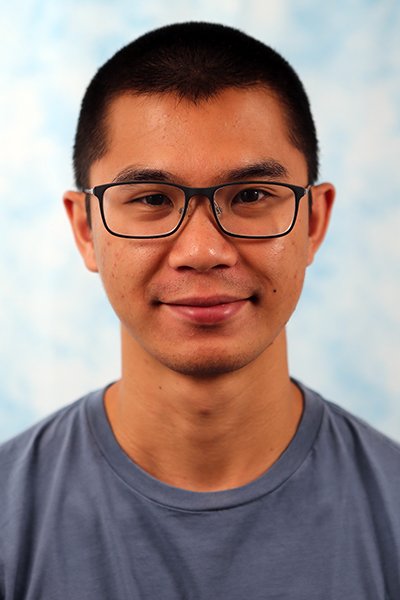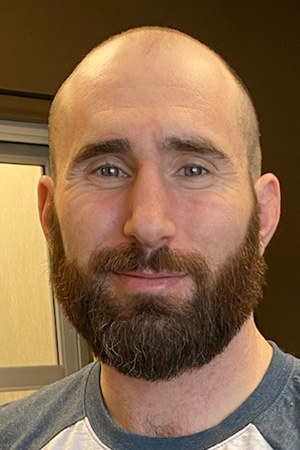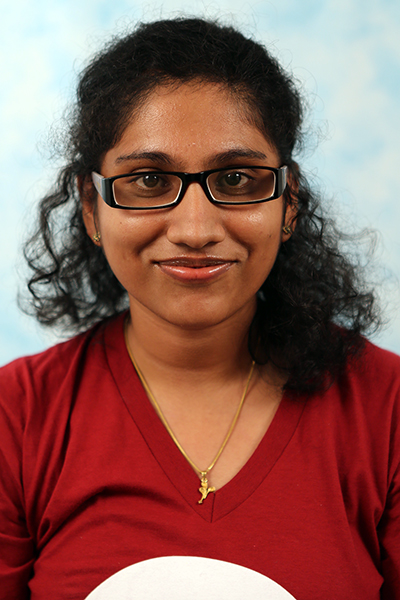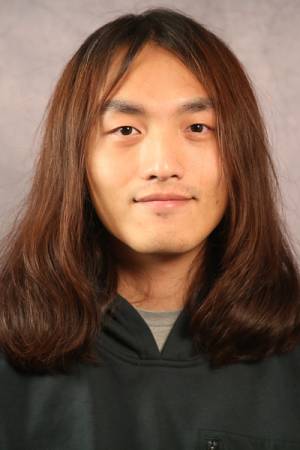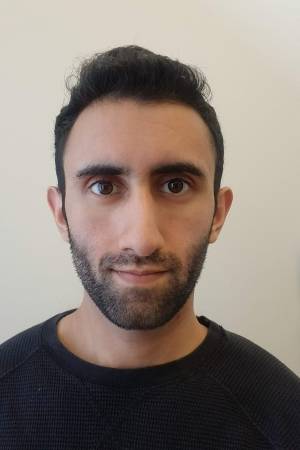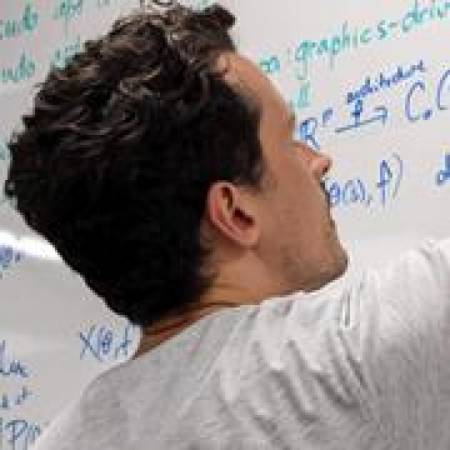RI Faculty Business Meeting
Meeting for RI Faculty. Discussions include various department topics, policies, and procedures. Generally meets weekly.
Multi-Object Tracking in the Crowd
Abstract: In this talk, I will focus on the problem of multi-object tracking in crowded scenes. Tracking within crowds is particularly challenging due to heavy occlusion and frequent crossover between tracking targets. The problem becomes more difficult when we only have noisy bounding boxes due to background and neighboring objects. Existing tracking methods try to [...]
Utilizing Panoptic Segmentation and a Locally-Conditioned Neural Representation to Build Richer 3D Maps
Abstract: Advances in deep-learning based perception and maturation of volumetric RGB-D mapping algorithms have allowed autonomous robots to be deployed in increasingly complex environments. For robust operation in open-world conditions however, perceptual capabilities are still lacking. Limitations of commodity depth sensors mean that complex geometries and textures cannot be reconstructed accurately. Semantic understanding is still [...]
NREC Study Group & Recent Projects
This talk will describe the NREC study process that has been developed as a lower cost of entry work product for potential partners. This is a process that is available for anyone on campus that wants to help their sponsors create viable system concepts and potential development costs before committing to a full development program. [...]
Machine Learning and Model Predictive Control for Adaptive Robotic Systems
Abstract: In this talk I will discuss several different ways in which ideas from machine learning and model predictive control (MPC) can be combined to build intelligent, adaptive robotic systems. I’ll begin by showing how to learn models for MPC that perform well on a given control task. Next, I’ll introduce an online learning perspective on [...]
Magnification-invariant retinal distance estimation using a laser aiming beam
Abstract: Retinal surgery procedures like epiretinal membrane peeling and retinal vein cannulation require surgeons to manipulate very delicate structures in the eye with little room for error. Many robotic surgery systems have been developed to help surgeons and enforce safeguards during these demanding procedures. One essential piece of information that is required to create and [...]
Towards more effective remote execution of exploration operations using multimodal interfaces
Abstract: Remote robots enable humans to explore and interact with environments while keeping them safe from existing harsh conditions (e.g., in search and rescue, deep sea or planetary exploration scenarios). However, the gap between the control station and the remote robot presents several challenges (e.g., situation awareness, cognitive load, perception, latency) for effective teleoperation. Multimodal [...]
Bridging Humans and Generative Models
Abstract: Deep generative models make visual content creation more accessible to novice and professional users alike by automating the synthesis of diverse, realistic content based on a collected dataset. People often use generative models as data-driven sources, making it challenging to personalize a model easily. Currently, personalizing a model requires careful data curation, which is [...]
Learning Visual, Audio, and Cross-Modal Correspondences
Abstract: Today's machine perception systems rely heavily on supervision provided by humans, such as labels and natural language. I will talk about our efforts to make systems that, instead, learn from two ubiquitous sources of unlabeled data: visual motion and cross-modal sensory associations. I will begin by discussing our work on creating unified models for [...]
Impulse considerations for reasoning about intermittent contacts
Abstract: Many of our interactions with the environment involve making and breaking contacts. However, it is not always obvious how one should reason about these intermittent contacts (sequence, timings, locations) in an online and adaptive way. This is particularly relevant in gait generation for legged locomotion control, where it is standard to simply predefine and [...]
Multi-Human 3D Reconstruction from Monocular RGB Videos
Abstract: We study the problem of multi-human 3D reconstruction from RGB videos captured in the wild. Humans have dynamic motion, and reconstructing them in arbitrary settings is key to building immersive social telepresence, assistive humanoid robots, and augmented reality systems. However, creating such a system requires addressing fundamental issues with previous works regarding the data [...]
Learning and Translating Temporal Abstractions across Humans and Robots
Abstract: Humans possess a remarkable ability to learn to perform tasks from a variety of different sources-from language, instructions, demonstration, etc. In each case, they are able to easily extract the high-level strategy to solve the task, such as the recipe of cooking a dish, whilst ignoring irrelevant details, such as the precise shape of [...]
Robust Incremental Smoothing and Mapping
Abstract: In this work we present a method for robust optimization for online incremental Simultaneous Localization and Mapping (SLAM). Due to the NP-Hardness of data association in the presence of perceptual aliasing, tractable (approximate) approaches to data association will produce erroneous measurements. We require SLAM back-ends that can converge to accurate solutions in the presence [...]
Carnegie Mellon University
3D Reconstruction using Differential Imaging
Abstract: 3D reconstruction has been at the core of many computer vision applications, including autonomous driving, visual inspection in manufacturing, and augmented and virtual reality (AR/VR). Because monocular 3D sensing is fundamentally ill-posed, many techniques aiming for accurate reconstruction use multiple captures to solve the inverse problem. Depending on the amount of change in these [...]
Learning with Structured Priors for Robust Robot Manipulation
Abstract: Robust and generalizable robots that can autonomously manipulate objects in semi-structured environments can bring material benefits to society. Data-driven learning approaches are crucial for enabling such systems by identifying and exploiting patterns in semi-structured environments, allowing robots to adapt to novel scenarios with minimal human supervision. However, despite significant prior work in learning for [...]
Learning Parameter-Efficient Quadrotor Dynamics Models
Abstract: Operation of quadrotors through high-speed, high-acceleration maneuvers remains a challenging problem due to the complex aerodynamics in this regime. While standard physical models suffice for control in near-hover conditions, the primary challenge in executing aggressive trajectories is obtaining a model for the quadrotor dynamics that adequately models the aerodynamic effects present, including lift, drag, [...]
RI Faculty Business Meeting
Meeting for RI Faculty. Discussions include various department topics, policies, and procedures. Generally meets weekly.
Carnegie Mellon University
Self-Supervising Occlusions For Vision
Abstract: Virtually every scene has occlusions. Even a scene with a single object exhibits self-occlusions - a camera can only view one side of an object (left or right, front or back), or part of the object is outside the field of view. More complex occlusions occur when one or more objects block part(s) of [...]
Multi-Sensor Robot Navigation and Subterranean Exploration
Predicting The Future and Linking the Past: Learning and Constructing Structured Models for Robotic Manipulation
Abstract: Intelligent robotic agents need to reason about the dynamics of their surrounding world, and use such dynamics reasoning to make future predictions for efficient task planning. In addition, it is also desirable for robots to associate past experience in their memories to their current observation, and conduct analogical reasoning to complete tasks at their [...]
Carnegie Mellon University
MSR Thesis Talk: Tushar Kusnur
Title: Search-based Planning for Sensor-based Coverage Abstract: Robots are excellent candidates for the dull, dirty, and dangerous jobs we do not want humans to perform. Today, these include inspection of large areas or structures, post-disaster assessment, and surveillance. Assessing the aftermath of the recent Fern Hollow bridge collapse in Pittsburgh is one such example. Many [...]
Human-in-the-loop Model Creation
Abstract: Deep generative models make visual content creation more accessible to novice users by automating the synthesis of diverse, realistic content based on a collected dataset. However, the current machine learning approaches miss several elements of the creative process -- the ability to synthesize things that go far beyond the data distribution and everyday experience, [...]
Robotic Interestingness via Human-Informed Few-Shot Object Detection
Abstract: Interestingness recognition is crucial for decision making in autonomous exploration for mobile robots. Previous methods proposed an unsupervised online learning approach that can adapt to environments and detect interesting scenes quickly, but lack the ability to adapt to human-informed interesting objects. To solve this problem, we introduce a human-interactive framework, AirInteraction, that can detect [...]
Towards a formal theory of deep optimisation
Abstract: Precise understanding of the training of deep neural networks is largely restricted to architectures such as MLPs and cost functions such as the square cost, which is insufficient to cover many practical settings. In this talk, I will argue for the necessity of a formal theory of deep optimisation. I will describe such a [...]
Carnegie Mellon University
MSR Thesis Talk: Nikhil Angad Bakshi
Title: See But Don't Be Seen: Towards Stealthy Active Search in Heterogeneous Multi-Robot Systems Abstract: Robotic solutions for quick disaster response are essential to ensure minimal loss of life, especially when the search area is too dangerous or too vast for human rescuers. We model this problem as an asynchronous multi-agent active-search task where each robot aims [...]
Carnegie Mellon University
MSR Thesis Talk: Yves Georgy Daoud
Title: Spatial Tasking in Human-Robot Collaborative Exploration Abstract: This work develops a methodology for collaborative human-robot exploration that leverages implicit coordination. Most autonomous single- and multi-robot exploration systems require a remote operator to provide explicit guidance to the robot team. Few works consider how to integrate the human partner alongside robots to provide guidance in the [...]
Carnegie Mellon University
MSR Thesis Talk: Ambareesh Revanur
Title: Towards Video-based Physiology Estimation Abstract: RGB-video based human physiology estimation has a wide range of practical applications in telehealth, sports and deep fake detection. Therefore, researchers in the community have collected several video datasets and have advanced new methods over the years. In this dissertation, we study these methods extensively and aim to address the [...]
Carnegie Mellon University
MSR Thesis Talk: Raghavv Goel
Title: Automating Ultrasound Based Vascular Access Abstract: Timely care of trauma patients is important to prevent casualties in resource-limited regions such as the battlefield. In order to treat such trauma using point of care diagnosis, medical practitioners typically use an ultrasound for vascular access or detection of subcutaneous splinters for providing critical care. The problem here is two-fold: [...]
Carnegie Mellon University
MSR Thesis Talk: Mayank Singh
Title: Analogical Networks: Memory-Modulated In-Context 3D Parsing Abstract: Recent advances in the applications of deep neural networks to numerous visual perception tasks have shown excellent performance. However, this generally requires access to large amount of training samples and hence one persistent challenge is the setting of few-shot learning. In most existing works, a separate parametric neural [...]
Carnegie Mellon University
Learning with Diverse Forms of Imperfect and Indirect Supervision
Abstract: Powerful Machine Learning (ML) models trained on large, annotated datasets have driven impressive advances in fields including natural language processing and computer vision. In turn, such developments have led to impactful applications of ML in areas such as healthcare, e-commerce, and predictive maintenance. However, obtaining annotated datasets at the scale required for training high [...]
Carnegie Mellon University
MSR Thesis Talk: Yutian Lei
Title: ARC: AdveRsarial Calibration between Modalities Abstract: Advances in computer vision and machine learning techniques have led to flourishing success in RGB-input perception tasks, which has also opened unbounded possibilities for non-RGB-input perception tasks, such as object detection from wireless signals, point clouds, and infrared light. However, compared to the matured development pipeline of RGB-input [...]
FRIDA: Supporting Artistic Communication in Real-World Image Synthesis Through Diverse Input Modalities
Abstract: FRIDA, a Framework and Robotics Initiative for Developing Arts, is a robot painting system designed to translate an artist's high-level intentions into real world paintings. FRIDA can paint from combinations of input images, text, style examples, sounds, and sketches. Planning is performed in a differentiable, simulated environment created using real data from the robot [...]
Perception for High-Speed Off-Road Driving
Abstract: On-road autonomous driving has seen rapid progress in recent years with driverless vehicles being tested in various cities worldwide. However, this progress is limited to cities with well-established infrastructure and has yet to transfer to off-road regimes with unstructured environments and few paved roads. Advances in high-speed and reliable autonomous off-road driving can unlock [...]
Continual Learning of Compositional Skills for Robust Robot Manipulation
Abstract: Real world robots need to continuously learn new manipulation tasks in a lifelong learning manner. These new tasks often share sub-structures (in the form of sub-tasks, controllers) with previously learned tasks. To utilize these shared sub-structures, we explore a compositional and object-centric approach to learn manipulation tasks. While compositionality in robot manipulation can manifest [...]
Junior Faculty PhD Admissions Process Presentation
A presentation lead by David Wettergreen regarding the PhD Admission process.
Carnegie Mellon University
MSR Thesis Talk: Samuel Ong
Title: Data-Driven Slip Model for Improved Localization and Path Following applied to Lunar Micro-Rovers Abstract Micro-lunar rovers need to solve a slew of challenges on the Moon, with no human intervention. One such challenge is the need to know their location in order to navigate and build maps. However, localization is challenging on the moon due [...]
Computational Interferometric Imaging
Abstract: Imaging systems typically accumulate photons that, as they travel from a light source to a camera, follow multiple different paths and interact with several scene objects. This multi-path accumulation process confounds the information that is available in captured images about the scene and makes using these images to infer properties of scene objects, such [...]
Making AI trustworthy and understandable by clinicians
Abstract: Understandable-AI techniques facilitate to use of AI as a tool by human experts, giving humans insight into how AI decisions are made thereby helping experts discern which AI predictions should or shouldn’t be trusted. Understandable techniques may be especially useful for applications with insufficient validation data for regulatory approval, for which human experts must remain the final decision [...]
Towards Interactive Radiance Fields
Abstract: Over the last years, the fields of computer vision and computer graphics have increasingly converged. Using the exact same processes to model appearance during 3D reconstruction and rendering has shown tremendous benefits, especially when combined with machine learning techniques to model otherwise hard-to-capture or -simulate optical effects. In this talk, I will give an [...]
Robust and Context-Aware Real-Time Collaborative Robot Handling with Dynamic Gesture Commands
Abstract: Real-time collaborative robot (cobot) handling is a task where the cobot maneuvers an object under human dynamic gesture commands. Enabling dynamic gesture commands is useful when the human needs to avoid direct contact with the robot or the object handled by the robot. However, the key challenge lies in the heterogeneity in human behaviors [...]

